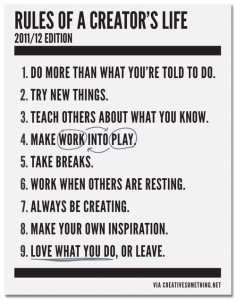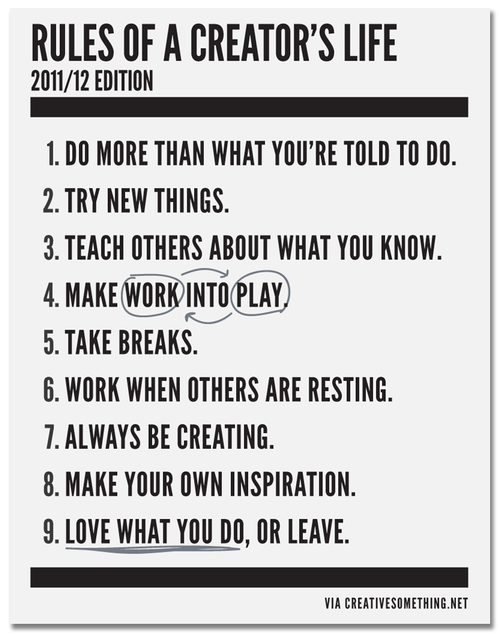A guest post by Oscar Abello
That video of Victor Wooten doing a solo electric bass performance of Amazing Grace just blows my mind. In a recent TEDed video, he plays a slightly toned-down version in the background while he’s explaining his belief that music is a language and must be treated as such. People don’t learn their first language by studying the rules, he says, but rather they learn by making mistakes and playing often. We learn from jamming with “experts”—from having conversations with parents, family members, friends, teachers, coaches.
We learn to play instruments first, be they our voice and body or some other object, to communicate ideas, emotions, desires. Only later do we learn the formal rules and eventually a few of us end up studying a language in-depth, music included.
I am starting to think development is like music.
Economics. Political science. Anthropology. Sociology. History. Project management. Communications. Accounting. These aren’t just disciplines relevant to development. They’re instruments. The greater the diversity of instruments, the greater the vibrancy of what’s produced. An acapella group or solo cellist may be dazzling, but they just don’t compare to a full orchestra or even just a punk rock trio. The greatest blues players strummed but three chords on a guitar, but they paired that with a voice and changed music forever. Different instruments working together to establish rhythm and melody isn’t just music; it’s also development.
 If you are thinking about what to study to work in development, don’t study development first. People don’t study music before they learn to play an instrument. You pick an instrument and you learn how to play. Sure you can get lessons from music teachers or books, but don’t ignore what a good jam session can do for you.
If you are thinking about what to study to work in development, don’t study development first. People don’t study music before they learn to play an instrument. You pick an instrument and you learn how to play. Sure you can get lessons from music teachers or books, but don’t ignore what a good jam session can do for you.
Fortunately, thanks to the Internet and social media, you have unprecedented access to some cool development players like Jennifer Lentfer, Tom Murphy, Edward Carr, Owen Barder, Duncan Green, Linda Raftree, and a whole world of researchers and implementers from a growing variety of locales. Every tweet, blog post, or blog post comment thread is a chance to start or join a jam session where you can practice playing an instrument and discover your unique playing style—that personal edge that every musician brings to their work.
Every discipline is an instrument. No one discipline has all the answers. Learn a discipline, and bring that into conversation with people who play other instruments to make beautiful music.
Perhaps the most important way development is like music is this: the geniuses, the brilliant minds who touch and transform the lives of millions of people for centuries on end, the ones who inspire generation upon generation to believe in themselves and in a better world, the true artists of their time, can come from anywhere and any background, and they never do it all by themselves.
***
Oscar learned to play economics at Villanova University. His first gig out of college was at the Center for International Private Enterprise, where they played a lot of Hernando de Soto and Doug North. He moved to Results for Development Institute in September 2011; it’s a young organization that’s coming close to finding its tune. Oscar’s been jamming for a few years at Nextbillion.net, and recently he started jamming at Co.Exist, the Fast Company blog on world-changing ideas and innovation. If you want to jam with Oscar, the easiest place to find him is @oabello.
***
Related Posts
Remembering George Harrison on the road to Busan
The too-often forgotten, critical first half of M&E
Sex, Slactivism, and How Not to Change the World


A comment from Pakistan via LinkedIn:
“There is a beauttiful and rhythmic symmetry between Development and Music. If one is lucky to find the connection, everything falls in place and things begin to happen. Talk music to communities and they will respond immediately because they are the carriers of folklore through centuries of singing. Sing with them, and dance with them — and then there will no difference between the community and those who wish to see them on the developing path. DIscovery of symmetry is what it is all about…”
Thank you. I fully agree… development initiatives should not focus so much on studying rules, procedures, methodology or analyzing case studies but on having experts jamming in the field to find the melody that resonates development.